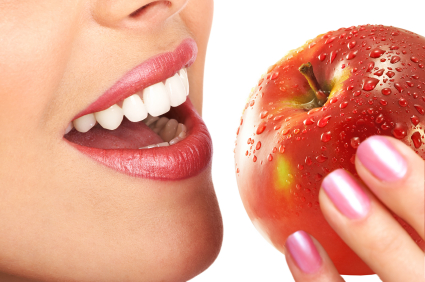 And no, it’s not raindrops on roses and whiskers on kittens, although I like them too!
And no, it’s not raindrops on roses and whiskers on kittens, although I like them too!
I’ve been eating the way I do for quite a few years and I’ve learned over the years how to find some great ingredients that are super healthy, less expensive or hard-to-find, and I wanted to share that with you. Now for those of you who live far away from me, I apologize in advance. Hopefully you can find some of these same things at stores near you or very similar items.
I am not advertising for anyone nor trying to sell any particular product for my own personal gain. I don’t get commission on this stuff either. This is just my list of grocery items that I have found are either a great value or particularly good.
I love Trader Joe’s to stock up on great healthy, often organic items at a super great price. I tend to get more of the canned, bottled and frozen foods when I go to Trader Joe’s, and like to get more of my fresh produce at Whole Foods or the local grocery or farmer’s market. The selection is better and the produce seems fresher.
Some of these things are just super tasty, some of them are hard-to-find ingredients, some of them are things that come with a small price tag or that just save time and energy when making meals. I will probably be adding to this list from time to time, as new products come out, prices change, etc.
Here is my list thus far:
Grassfed Beef–This is such great stuff and totally different (and better because of the fat content) than ‘organic’. Choose grassfed over organic whenever possible. The BEST tasting, highest quality grassfed meat can be ordered from U.S. Wellness online. They deliver to your door in two days. If you want to find something closer, get grassfed from Whole Foods. They now carry a decent assortment of locally raised grassfed meats. I also found that Trader Joe’s carries grassfed ground beef which is really tasty and a decent price as well. Also, your closest farmer’s market may carry grassfed meats, local and natural bacon and free range pastured eggs.
Chicken–I like Trader Joe’s chicken. They offer organic/free range breasts and thighs (boneless and skinless), or whole chickens at a good price. Costco also carries some convenient three packs of organic boneless, skinless thighs or breasts at a great price. I prefer boneless skinless thighs because they have a better flavor, and juicier and more tender, and because the thighs are dark meat, they contain more iron and other nutrients than breasts do.
Bacon–The only kind of bacon you should eat is the natural kind that is nitrate and nitrate free. Regular grocery stores sell it, but, wow! It’s expensive there. I hate paying $6 or $7 for a small package of bacon that doesn’t even weigh a pound. Trader Joe’s sells a package of “Ends and Pieces” bacon that weighs a whole pound and is delicious, and all natural as well. It’s mostly regular slices of bacon and a few smaller thicker, odd pieces. Works for me at $2.99 for a pound.
Natural Chicken Sausage from TJ’s or WF–Both stores have a great selection of natural chicken sausages. They are relatively inexpensive and a great quick meal with some veggies or delicious added to eggs in the am. Or try a little stirfry with them. The green apple sausage from TJ’s is da bomb. Had them on the grill last night!
Natural Peanut Butter–Trader Joe’s Valencia Peanuts and flax butter.
Sunflower Butter–For those of us who have developed a nut allergy, sunflower butter is a great substitute. Try to find the kind without a lot of sugar.
REAL Butter–Kerrygold brand of Grassfed butter. Grass fed is WAY better than regular butter, and has the hard-to-find vitamin K2. I originally found this butter in my regular grocery store (Dierberg’s), but I’ve seen it at Trader Joes and Whole Foods as well. Trader Joe’s by far has the best price on this–it’s $2.00 less than what it sells for at Whole Foods.
Raw Cheese–Regular grocery stores are starting to carry raw cheeses and some have a great variety. And raw goat cheese is great for those who have dairy allergies and sensitivities. I am allergic to pasteurized dairy, but raw cheese is just fine !My very favorite (not cheap, but soo delicious!) Raw, cave aged gruyere from Whole Foods. Wow. What a delicious nutty taste it has.
Eggs–Now this can be a complex decision. So many different kinds of eggs and different classifications. The best choice is from the local farmer’s market, and pasture raised. If you are purchasing from a grocery store, look for ‘organic’ or ‘pasture-raised’. Buying this classification is generally more expensive, but chickens who are raised for organic eggs are much healthier overall, not given hormones and antibiotics and not near as likely to have eggs with salmonella or other dangerous organisms. If you can’t find organic or just don’t want to pay the high price, look for ‘free range’ and organic eggs. My favorite from Whole Foods is Farmer’s Hen House ‘free range’ egg raised on Amish farms. (Amish farms are close to organic, just not certified). This brand comes in a ‘jumbo’ size, so for $3.99, you get a lot of egg–with rich orange yolks (meaning they have lots of healthy omega 3 fats and nutrients).
Nuts–Trader Joe’s also has a great variety of nuts and trail mix. Just watch out for the sugary additions if you are doing trail mix or a flavored nut.
Energy Bars (grain free and nut free)–Macro bars are my new favorites! Most any grocery or health food store now carries a wide variety of energy bars. Whole Foods has a whole wall of them! Whew…gets crazy trying to decipher ingredients. Trader Joe’s also carries a great selection. Stay away from the manufactured ‘energy bars’ which are basically processed soy and sugar.
Paleo Bread or Tortillas–Whole Foods and other health food stores now carry somewhat expensive paleo tortillas and other bread products, but these can be expensive. Better to make your own or omit all together.
Milk (milk substitute)–I love Trader Joe’s brand of coconut milk in the carton. Many companies make this type of milk now and I like the flavor (no coconut taste), and it’s consistency. Watch out for added sugars though. Hemp and flax milk are good, and I’ve seen quinoa milk. These can be pricey, and often there is little of the main ingredient and a lot of fillers, sugars, thickeners, etc. At least buy the kind with no added sugar.
Pasta–Tj’s now carries a lot of great gluten free pastas and the latest, which is REALLY good is black bean pasta. I looked at the ingredients and it said, “Black bean flour”. Period. It is really good, really hearty and filling and full of protein and fiber. YUM. There is also yucca flour pasta, quinoa pasta, etc.
A Healthy Treat–Trader Joe’s Toasted Coconut snacks. A hint of sweetness, a nice crunch, a touch of toasted coconut flavor, with a little bit of sea salt. Wow! My new favorite snack.
Chips–Of course you should avoid chips, but sometimes you just want a salty crunchy snack. These fill the bill. Trader Joe’s carries them and I’ve seen similar ones elsewhere. Lentil chips. These tasty chips are made of lentils and rice flour. No corn, no gluten, and no added oils. And they hold up well to your favorite hummus.
Laundry Detergent–Since I have read about and personally experienced the problems that the toxins in regular laundry detergent contains, I have switched to an all natural, plant based type. One of my favorites and by far the best price is either Trader Joe’s own brand of lavender scented detergent or Whole Food’s 365 brand. Both seem to do a great job (and I don’t get itchy) and are suitable for HE washers too.
While I’m at it, I love Trader Joe’s French milled soap bars, their natural citrus shampoo, cream rinse and body wash too–free of chemical toxins and additives.
Favorite Supplements–While I can get clients physician grade supplements at a good price, I have found that a couple brands at Whole Foods are just as good and you can get them quickly (if you live near a WF), and the prices are about the same as what I get at a discount. Plus you don’t have to pay for shipping, wait for them to arrive, etc. Solaray and Twinlab are good lines with a wide variety of vitamins, minerals and herbs. I also like Jarrow for more speciality items like Alpha Lipoic Acid.
P.S. I get Grain free natural dogfood from Costco that my dog loves and is a great buy as well.
 Catherine (Cat) Ebeling RN BSN, is a back to basics diet and nutrition specialist. In addition to her advanced degree in nursing from a major medical school, she has spent the last 30 years intensely studying diet, health and nutrition.
Catherine (Cat) Ebeling RN BSN, is a back to basics diet and nutrition specialist. In addition to her advanced degree in nursing from a major medical school, she has spent the last 30 years intensely studying diet, health and nutrition.
Get the latest Gluten Free, Superfoods Recipe book HERE–The Fat Burning Kitchen Superfoods Recipes.
Cat also has a book titled “The Fat Burning Kitchen, Your 24 Hour Diet Transformation” that has sold over 60,000 copies worldwide, and has helped thousands of people transform their lives, lose weight and improve their health.
Her mission is to help others prevent disease and live their best life ever.
Nutrition made Easy. Simple.Smart.Nutrition.








